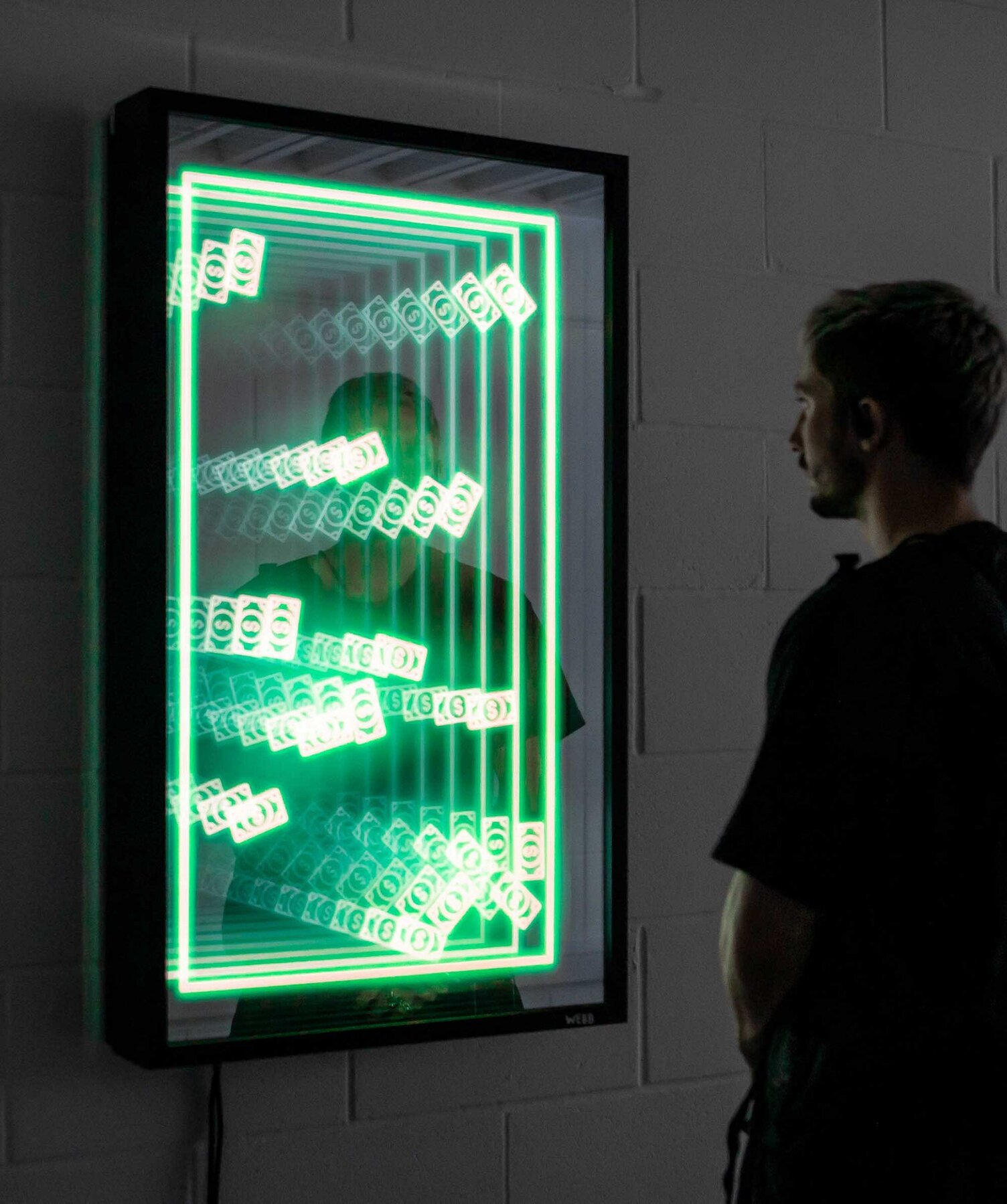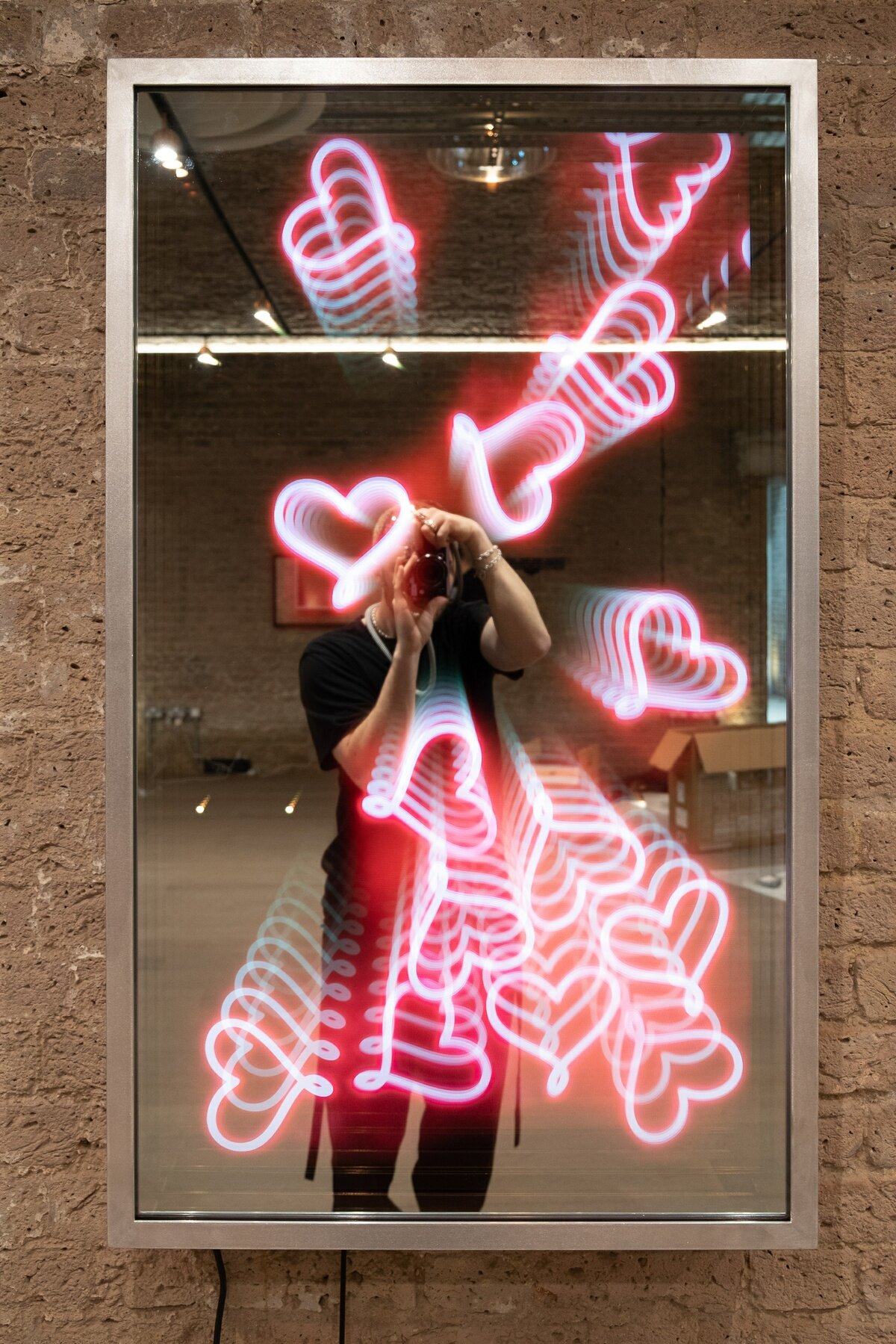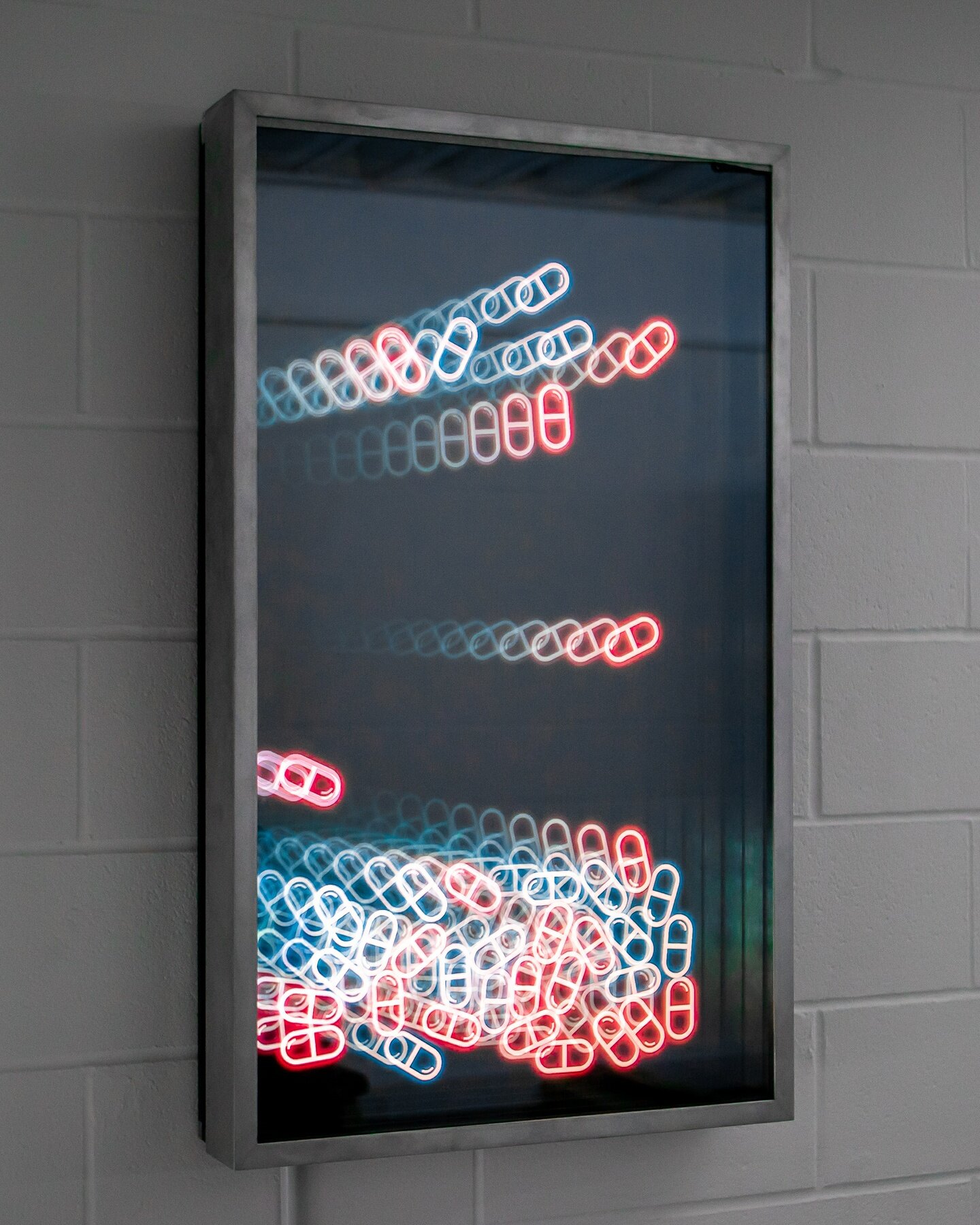World Wide Webb
British digital artist Thomas Webb has been already spotted on our radars, during the intervention of the Digital Decade at The Anti Art Fair, 2018 where he presented a digital mirrors displaying the interactive infographics of real-time social anxiety issues.
Fear Of Being Transparent (Digital Infinity Mirror), 2018, König Galerie
Webb works with video game engines, custom-written physics applications and 3D rendering software to recreate themes inside the computer; Hand-building various electronic machines and inventions to re-interpret these virtual artworks into hyper-realistic four-dimensional artworks. Webb challenges the barrier between the viewer and technology used to display computer-generated artwork to create a seemingly technology-free consummation.
Webb invented the digital infinity mirror; an innovation of the infinity mirror using high power commercial LED displays, custom-built computer hardware. This combination of materials realises his vision of a digital medium that shifts in 4-dimensions as a function of each viewers perspective.
Inside his artworks, he questions the real-life scenarios and consequences created through our newly acquired, daily use of technology. Harnessing real-time data feeds from mortality statistics, stock market prices and social media feeds to juxtapose a reflection on ultimate contemporary life. He is often touching on themes of mental health, addiction, big data and control as a guinea pig of the internet revolution and asking questions about the various implications of its application on modern society.
World Wide Webb @ König Galerie, 2020
14 Aug 2020 - 14 Aug 2021, König DigitalThe WORLD WIDE WEBB is a virtual world driven by Artificial Intelligence and real-time data. The digital visitor enters through the browser on a smartphone, and is invited to do an exercise in hopeless nostalgia. The WORLD WIDE WEBB is a multiplayer simulation, a digital exhibition space, and a world full of art and characters the visitor interacts with. Webb also recreates the social spontaneity of the world pre-Covid-19.
The cultural theorist Mark Fisher states that the future has been lost because humans keep returning to the past and wallow in nostalgia when trying to develop concepts for the future. Due to coronavirus not only the future but also the present have been cancelled. Webb triggers a common fascination for the past by imitating a 80s video game aesthetic. This old technology is the starting point for him to imagine a possible near future.
Webb created a world in which data is used as a common property. What if companies collecting data aren’t allowed to sell the data but are required to share it? What if data is not used in the interest of a company? How do people feel when an AI tailors a life for them based on their personality, choices they make, and things they enjoy through technology?
World Wide Webb, 2020
On display at KÖNIG GALERIE are 12 digital artworks by Thomas Webb. He demonstrates what data can be used for now with the limitation in place by the tech companies not sharing the data. At the same time, he creates spaces that allow the users to experience connection through technology without monetizing their actions. RAINFALL for example is an algorithm constructing moments that can be shared by two or more people. With DEPRESSED TWITTER, Webb contributes to the dialog about the effects of social media on mental health. The tweets about depression without the display of the usual information such as user name, profile picture, follower numbers and likes are a reminder that individuals suffering from social media are often socially stigmatised. When the digital visitors leave the gallery, they enter an AI-driven simulation that shows the world what it would be like if data was free. Webb built cities like Berlin, Osaka and Kanagawa with clubs, bars, shops, schools, and homes.












